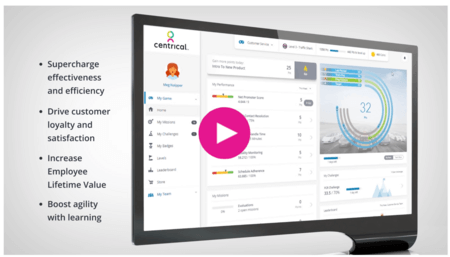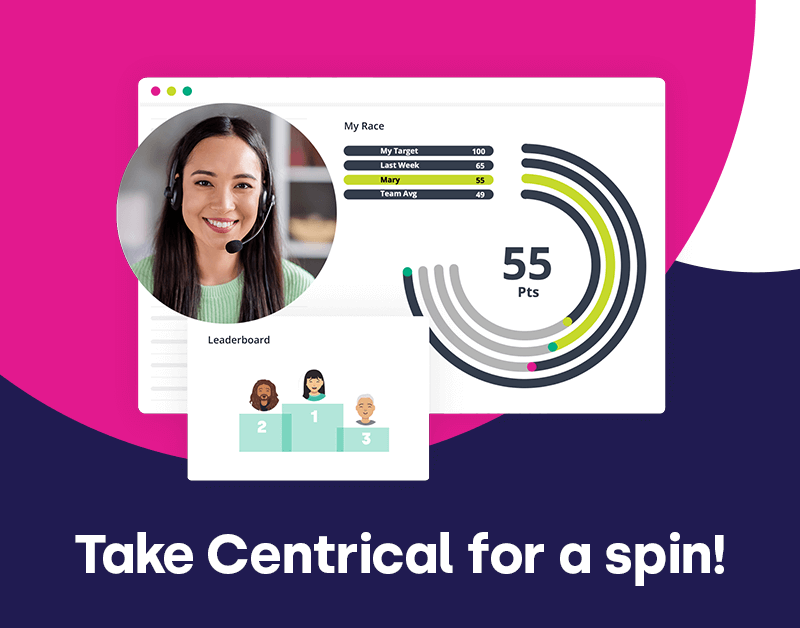Call center training is a critical component of success for businesses looking to provide exceptional customer service and maintain a competitive edge in today’s fast-paced world. A well-trained call center team can handle customer inquiries effectively, leading to increased satisfaction and long-term loyalty. In this article, we will discuss the importance of call center training, essential elements, and best practices to help you build a top-performing team.
What is call center training?
Call center training prepares call center agents with the necessary skills, knowledge, and techniques to handle customer interactions effectively and professionally. The ultimate goal of call center training is to improve customer satisfaction, increase agent capability and performance, and deliver business results, such as increased revenue and meeting key metrics. Through comprehensive call center training, agents are enabled to excel in their roles, and master skills that include communications, problem-solving, product and service knowledge, time management, and using systems. A solid call center training program also fosters a more cohesive, efficient, and customer-centric team.
The Importance of Call Center Training
Call center training is necessary for the entire employee lifecycle, and includes onboarding, initial training, upskilling, cross-skilling, and other professional growth opportunities. Thorough training for call center agents yields many benefits, including:
Improved Customer Satisfaction A well-trained call center team can resolve customer issues promptly and professionally, leading to higher CSAT rates, increased customer retention, and a positive brand reputation.
Increased Employee Retention Call center training sets agents up for success. When agents are well-trained, they are confident as they do their jobs, leading to better performance, higher job satisfaction, and reduced turnover rates.
Enhanced Business Performance When agents perform well, so will your business. Call center training enables higher employee productivity, better customer retention, and increased sales – all of which have a direct impact on the bottom line.
How to train for a call center?
We’ve just talked about the “what” and “why” around call center training – let’s discuss the “ho” in both methodology and getting started. To train call center agents effectively, we recommend a structured and comprehensive approach that addresses various aspects of the agent’s role. This begins with an orientation that introduces new agents to the company culture, policies, and expectations. (In fact, we recommend starting this process before the agent’s first day to help avoid “ghosting.”) After orientation and the business basics, there are some elements and best practices that we strongly recommend, which we will cover in the next two sections.

Ready to elevate your call center training program? See how Centrical can help with a quick preview.
Essential Elements of Call Center Training
The first step to an effective call center training program is covering the basic skills needed to set your agents up for success. These skills will help ensure smooth internal and external, customer-facing communications, improved metrics, including customer satisfaction (CSAT) and average handle time (AHT) rates, and better overall productivity.
Communication Skills Call center agents must master verbal and written communication skills, including active listening, empathy, and clear, concise messaging.
Product and Service Knowledge Agents should have a deep understanding of your company’s offerings to answer customer inquiries accurately and efficiently.
Problem-Solving and Critical Thinking Agents need to develop the ability to analyze customer issues and provide effective solutions quickly.
Time Management Training should emphasize the importance of multitasking and managing time effectively to handle high call volumes and meet performance targets.
Best Practices for Call Center Training
We’ve gone over some of the basics around call center training and the skills agents should have; in this section, we’ll cover some core best practices for training call center agents.
Implement a Robust Training Program Develop a comprehensive training program that covers all relevant topics, including company policies, product knowledge, and customer service techniques. Be sure to also continuously update these materials to keep agents current on topics such as changes to company policy and products, regulatory compliance, and the latest industry trends and changes.
Offer Hands-On Training New hires should be able to practice their skills in real-world scenarios, such as simulated calls or role-playing exercises. Whether agents are new to your company or to the overall role, this helps new folks build their confidence and prepare for real customer interactions. Also consider monitoring the practice scenarios with real-time feedback, and potentially having new agents “shadow” senior agents to see an experienced colleague in action.
Encourage Continuous Learning Offer call center agents learning opportunities in addition to initial training such as refresher courses, workshops, and seminars to help sharpen skills and stay up-to-date on industry best practices. Also consider implementing personalized, targeted microlearning as a way to reinforce learnings from formal training sessions in the flow of work.
Monitor and Measure Performance Regularly assess agent performance through call monitoring, customer feedback, and key performance indicators (KPIs). Use this data to identify areas for improvement and provide targeted coaching and support. We also recommend providing transparency for employees and coaches with real-time performance management.
Leverage Technology Look into tech solutions that can help streamline processes and boost agent performance. Call center technology and tools, such as customer relationship management (CRM) software, interactive voice response (IVR) systems, and workforce management solutions can be added to your tech roster to elevate the employee experience, and in turn, the customer experience.
Add Gamification While you are evaluating tech, consider adding gamification to your tool kit. Gamification is the use of game mechanics, such as badges, leaderboards, levels, and points applied to non-game contexts, such as a call center. Gamification helps keep call center employees motivated and engaged while elevating the employee experience and boosting performance.

Centrical as a Call Center Training Partner
Since 2013, Centrical has partnered with the world’s leading organizations to deliver targeted, personalized microlearning and augmented coaching as part of a comprehensive call center training program. We’ve also made the creation of call center training materials much easier and more scalable with our AI Microlearning capability. Centrical customers have seen results that include 40% faster onboarding, 53% less content authoring time, and much more.
Conclusion and Takeaways
Call center training is a critical investment for businesses. When leaders invest in a well-trained workforce, this investment pays off in top-notch customer service, and customer and employee retention, and drives long-term success. By focusing on essential skills, implementing best practices, and continuously monitoring and improving agent performance, your call center team will be prepared for any challenge, and better able to create lasting, meaningful customer relationships. A few key takeaways:
- Call center training is a vital element that improves agent knowledge, skills, and techniques to navigate and resolve customer inquiries
- The benefits of providing the right type of training for call center teams include improved CSAT, reduced attrition rates, and better overall business performance
- Key elements for call center agent training include a robust onboarding experience, product and service knowledge, and communication skills such as active listening, empathy, and improving clarity in written and verbal interactions.
- Call center training comes with core best practices, that include hands-on training, continuous learning, monitoring and measuring performance, and leveraging technology
- For over a decade, Centrical has helped organizations across industries and the globe successfully train their call center workforces, with customers seeing solid results
Are you ready to change the game for call center training? See the Centrical platform in action with a quick preview and request your personalized overview today.
Engage and motivate your frontline teams
Improve performance with an AI-powered digital coach
Deliver world class CX with dynamic, actionable quality evaluations
Boost performance with personalized, actionable goals
Nurture employee success with the power of AI
Listen and respond to your frontline, continuously
Drive productivity with performance-driven learning that sticks
Drive agent efficiency, deliver client results
Keep tech teams motivated and proficient on products and services while exceeding targets
Maintain compliance while building customer happiness and loyalty
Enlighten energy teams to boost engagement
Engage, develop, and retain your agents while driving better CX
Improve the employee experience for your reservations and service desk agents









 Madeleine Freind
Madeleine Freind
 Natalie Roth
Natalie Roth Linat Mart
Linat Mart












 Doron Neumann
Doron Neumann Gal Rimon
Gal Rimon Daphne Saragosti
Daphne Saragosti Ella Davidson
Ella Davidson Ariel Herman
Ariel Herman Ronen Botzer
Ronen Botzer